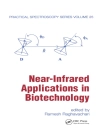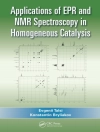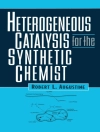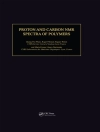Sustainable Materials for Electrochemical Capacitors
The book highlights the properties of sustainable materials for the production of commercial electrochemical capacitors.
Sustainable Materials for Electrochemical Capacitors details the progress in the usage of ubiquitous environmentally sustainable materials. Due to their cost effectiveness, flexible forms, frequent accessibility, and environmentally friendly nature, electrochemical capacitors with significant surface areas of their carbon components are quite common. Many novel ways for using bio-derived components in highly efficient electrochemical capacitors are being established as a consequence of current research, and this book provides details of all these developments.
The book provides:
* A broad overview of properties explored for the development of electrochemical capacitors;
* Introduces potential applications of electrochemical capacitors;
* Highlights sustainable materials exploited for the production of electrochemical capacitors;
* Presents commercial potential of electrochemical capacitors.
Audience
This is a useful guide for engineers, materials scientists, physicists, and innovators, who are linked to the development and applications of electrochemical capacitors.
Circa l’autore
Inamuddin, Ph D, is an assistant professor in the Department of Applied Chemistry, Aligarh Muslim University, Aligarh, India. He has extensive research experience in the multidisciplinary fields of analytical chemistry, materials chemistry, electrochemistry, renewable energy, and environmental science. He has published about 190 research articles in various international scientific journals, 18 book chapters, and 60 edited books with multiple well-known publishers.
Tariq Altalhi, Ph D, is Head of the Department of Chemistry and Vice Dean of Science College at Taif University, Saudi Arabia. He received his Ph D from the University of Adelaide, Australia in 2014. His research interests include developing advanced chemistry-based solutions for solid and liquid municipal waste management, converting plastic bags to carbon nanotubes, and fly ash to efficient adsorbent material. He also researches natural extracts and their application in the generation of value-added products such as nanomaterials.
Sayed Mohammed Adnan, Ph D, is a faculty member of the Department of Chemical Engineering, Zakir Husain College of Engineering and Technology, Faculty of Engineering and Technology, Aligarh Muslim University, India.












